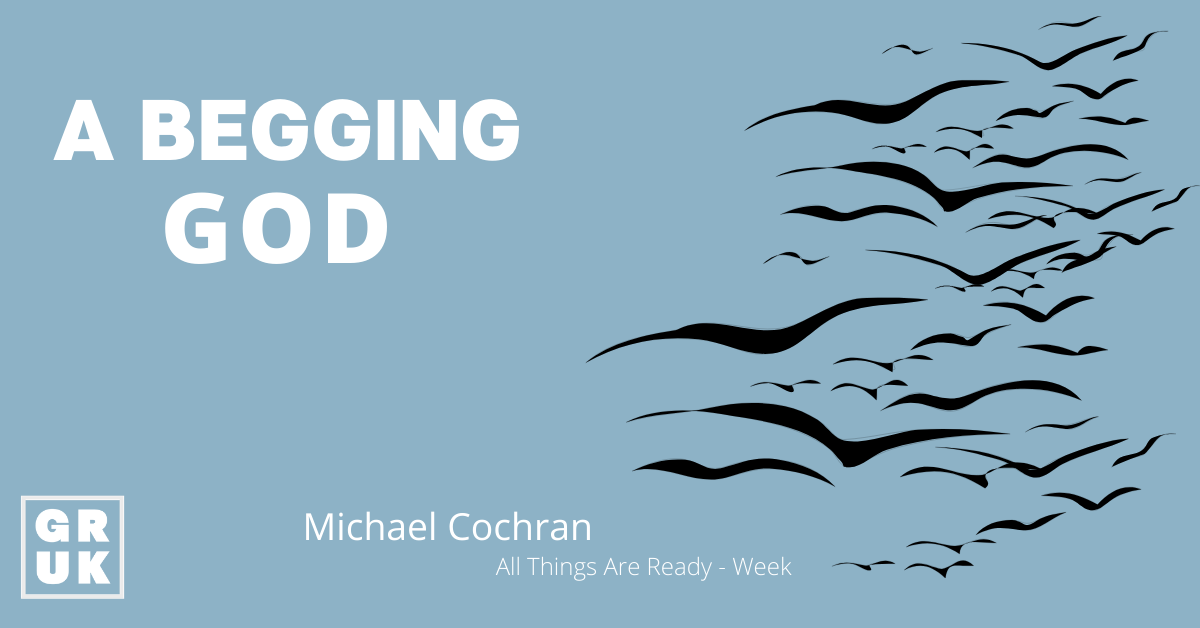Too Good for God
Continuing our week as we look at Donald John Maclean’s new book All Things Are Ready. I wanted to summarise and then jump off from chapter 4 which deals with the issue of who offers the Gospel and who receives it. It is by no means revolutionary but incredibly helpful to be reminded that, behind the human agent, God himself is offering the Gospel to sinners! A wonderful truth and a wonderful reminder to wayward sinners, the uncreated, sovereign Lord of the universe is actually making a personal appeal to you through his ambassadors!
The second half of this chapter deals with who accepts the offer. He touches on this idea that people, when faced with a holy God and his justice, may feel unworthy or too sinful, to come to God. They may be under the impression that there are conditions attached to the gospel, such as a need for reformation of the person, before they come to Christ.
On the one hand, this is a reminder that in our churches we need people to feel the weight of God’s holiness, majesty, and justice. We need a proper anthropology which shines the light of the Gospel on our sinful, rebellious, depravity. This is the way we come to Jesus, humble, spent, empty, and weary to find grace, mercy, and everlasting rest.
However, the idea that a person is so unworthy that they cannot accept the gospel has posed problems in the life of the church. On the one hand, it has lead to a sort of preperationism, whereby the church, looking at the sinful dregs of humanity, says you must show signs of repentance in order for us to know that you are elect, and thus saved. On the other hand, it has led to, as Maclean draws out, people who feel they are so unworthy to come to Jesus, that there are qualifications for the gospel.
We must emphasise that those who think they need to improve, or that they are completely unworthy and so cannot come to Jesus, have every warrant to believe and come! But this is the entire point of the Gospel: you, a sinner, are unworthy of God’s grace, which is why it’s called grace! He desires to save you despite your sin and rebellion!
In today’s society, though, we have moved away from God’s holiness and just judgment to a place where a majority of people think they are too good for God.
What do I mean?
The watchword of the day is ‘acceptance’ by which we mean, not mere coexistence (or toleration such a Christian and Muslim coexisting together despite each viewing the other as wrong in their fundamental beliefs) but rather the need to change your fundamental belief system in order to accommodate and accept someone else’s. People are no longer content to coexist with differing views but rather desire and need everyone to accept theirs.
We see this then even in some areas of the Church where churches shy away from the ethical demands of Scripture and capitulate to the wider culture. We see individuals now looking at Christianity and thinking, if this is who God is, he is wrong. God must accept them as they are they believe, without changes, and affirm all that they do, without any demands upon their life, or they have no interest in God.
I would wager this is the climate most of us find ourselves in, currently. So far from people believing they are too bad to come to Jesus, they believe are “too good” to come to Jesus if Jesus would demand that they change.
So what do we do?
As I said above, a steady diet of biblical preaching and teaching is always the order of the day. Ministers, elders, and congregants need to know:
the freeness of the Gospel. There are no restrictions; and
the goodness of God that we see so demonstrated in Jesus Christ; and
the justice and wrath of God, which we see so clearly in his holiness.
This is why Maclean’s book is helpful in laying out for us the gospel as the subtitle says in its fullness and freeness and it is something the church needs always to keep at the forefront!
But we also must realise that even with a winsome, loving, gospel presentation, we need to bring up sin and judgment. We need to show people in today’s world that, far from being ‘too good’ for God, they are ‘too bad’ for him. He dwells in unapproachable light, he is a consuming fire, he is the holy one — the other, completely set apart from sin and sinners.
I do not think we need to go back to a ‘hell-fire and brimstone’ kind of thundering preaching, but I do think we need to be clear on what we are presenting. Maclean’s book is quite helpful in that regards, it is winsome, loving, and it does not shy away from the reality of judgment. So once again we would commend it to you.








